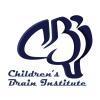Epileptologists in MA
Epilepsy Specialist
An epileptologist has advanced specialized training and is an expert in seizures and Epilepsy. Epileptologists are better equipped to optimize treatment options and increase a patient’s opportunities for an optimal outcome. Epileptologists are experts in epileptic seizures, seizure disorders, anticonvulsants, and special situations involving seizures. Epileptologists often receive patient referrals from primary care doctors or neurologists after their proposed treatments failed. Children’s Brain Institute’s Chief Medical Officer, Yaman Z. Eksioglu, M.D., Ph.D., is an epileptologist.
Compassionate Care, Advanced Medicine,
All Close to Home
Epileptologists Treat Epilepsy
Epilepsy is a brain disorder that causes people to be more susceptible to repeated, unprovoked seizures. In most cases, the cause of Epilepsy is entirely unknown. Epilepsy can cause changes in your child’s behavior and personality or lead to other neurological problems, learning disabilities, or psychological disorders such as anxiety and depression.
If your doctor suspects Epilepsy, he should refer you to a pediatric neurologist. A pediatric neurologist is a doctor who is an expert in diagnosing and treating conditions that affect your child’s brain and nerves. Pediatric neurologists further train to become epilepsy specialists (epileptologist).
Providing Better Healthcare And Better Healthcare Outcomes
There is no cure for Epilepsy, but we can manage it with medications and other strategies. Most people with Epilepsy become seizure-free by taking anti-seizure medication, called anti-epileptic medication or anticonvulsants. Anticonvulsants prevent or control seizures, relieve pain, and treat symptoms of specific psychiatric disorders. Parents who start giving Epilepsy medications to their child must be patient while the right medication is identified and the proper dosage prescribed. The kind of medication your doctor suggests depends on a few things; the type of seizures the child has, the frequency of the seizures, age, and sex are all factors in prescribing medications. It is common to try different medications before settling on one that works and has tolerable side effects.
Our Fast Access Neurology (FAN) Service ensures a clinic visit with an expert pediatric neurologist within 24 to 72 hours after referral or initial contact with Children’s Brain Institute. We believe each child with neurological, cognitive, and psychiatric disorders deserves immediate attention and care to provide an opportunity to reach optimum brain function and capacity and prevent developmental delays.
Our Fast Access Neurology (FAN) Service ensures a clinic visit with an expert pediatric neurologist within 24 to 72 hours after referral or initial contact with Children’s Brain Institute. We believe each child with neurological, cognitive, and psychiatric disorders deserves immediate attention and care to provide an opportunity to reach optimum brain function and capacity and prevent developmental delays.
Epilepsy Care
Lifestyle Changes
Healthy lifestyle changes can go a long way toward reducing the risk of having a seizure in some patients.
Lifestyle considerations:
• Sleep quality
• Chronic anxiety, depression, or excessive stress
• Stress
• Caffeine usage
• Missed medication
• Infrequently flashing lights
• Herbal remedies usage
